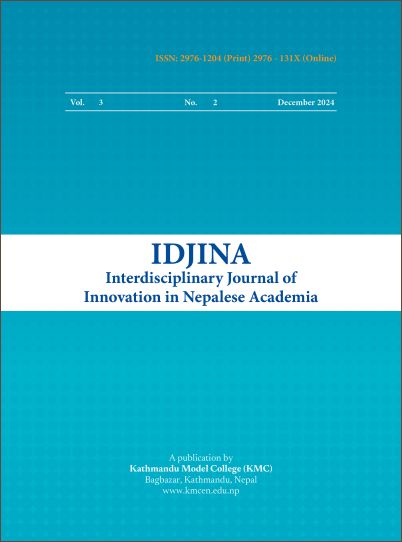Collaborative Governance for Sustainable Development in Nepal: Lessons from Large-Scale Infrastructure Projects
Keywords:
Collaborative governance, equality, resilience, SDGs, well-beingAbstract
This study investigates the role of collaborative governance in promoting sustainable development in Nepal by analyzing two large-scale infrastructure projects: a prominent hydropower company and a major water supply project. Using thematic analysis, the study involved coding, categorization, and theme identification through twelve interviews with key stakeholders. The findings highlight significant gaps in the governance structures of these projects, particularly in terms of resilience, equality, and well-being. Despite achieving technical success, both projects failed to adequately address broader social and environmental goals, leading to the marginalization of local communities and a decline in their well-being. The study is limited to these two projects and does not account for governance frameworks in other sectors or smaller-scale projects. Future research could expand by studying additional infrastructure projects or comparing governance practices in similar economies, thereby enhancing the potential to generalize the findings. The study addresses equity and inclusivity in collaborative governance for infrastructure development a relatively underexplored area in Nepal, emphasizing the importance of inclusive and equitable governance frameworks to achieve sustainable growth in underdeveloped economies.
Downloads
Downloads
Published
How to Cite
Issue
Section
License

This work is licensed under a Creative Commons Attribution-NonCommercial-NoDerivatives 4.0 International License.
This license allows reusers to copy and distribute the material in any medium or format in unadapted form only, for noncommercial purposes only, and only so long as attribution is given to the creator.




